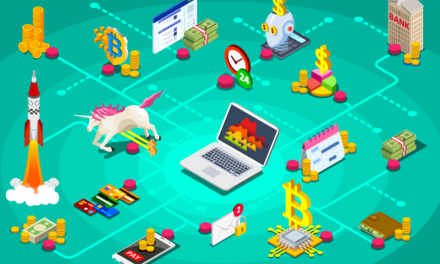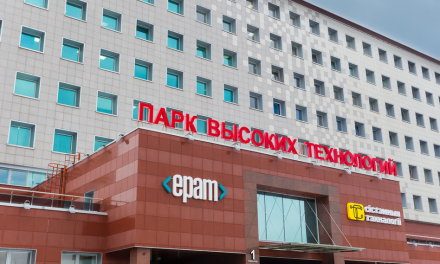The topic of today’s agenda is “blockchain meets agriculture” and the current effects of this convergence. What companies now offer solutions for the agricultural sector? What are these solutions? Let’s find answers to these questions further in the article.
Blockchain Meets Agriculture: What are the Solutions?
The weight of the sector in national economies is undeniably considerable. For example, in the US agriculture contributed roughly $1,000bn (as of 2017) to the country’s GRP, and employment accounted for 21.6 m jobs, with more than 50% of all workforce employed in the domain of food services.
The well-being of every country is mostly dependent on agriculture. Realizing that, agricultural institutions, enterprises, and companies are looking for ways to establish sustainable development of the sector, with innovative developments and applications. Also, when blockchain broke into our world, it rapidly stood out over other technologies, proposing more than one could previously imagine.
Blockchain can bring a limitless number of solutions to agriculture, and only our imagination creates these limits. Here’s what we’ve come up with so far, at least these are the solutions that seem the most promising:
- Farm-to-shelf tracing — from seed to market, both retailers and consumers will be able to verify the authenticity of each supply easily.
- Transparent supply chains — get comprehensive info at each step of the supply chain, from cultivation to distribution, with every data asset intractably recorded in an immutable ledger.
- Instant transactions — process blockchain-enabled payments in an anti-fraud and peerless environment where the system cryptographically encrypts transactions, and the whole network validates them.
- Streamlined inventory management — efficiently control every asset in your storage with the digital identity system, where forgery becomes a challenging venture.
- AgTech and IoT — couple blockchain with IoT and make farming “smarter”; real-time data from connected devices will go into a single and secure blockchain platform.
Blockchain Applications in Agriculture: Examples
Blockchain-based Commodity Management Platform from AgriDigital
The rapid growth of farm management software might eventually lead to the milestone of $4.22bn market value to be reached reportedly by 2025. However, this movement goes hand-by-hand with several persistent challenges, including lack of water supply, outdated practices in methods of cultivation of crop yields, and others.
Blockchain technology might become the key to overcoming these problems. In the event of its widespread adoption, the market volume might grow even more dramatically.
By integrating blockchain solutions into connected devices, farmers will get real-time access to self-sustained databases with a little risk of compromise or theft. Data transparency and integrity will lead to cost-effective transactions, rationalized warehousing, and resource management.
AgriDigital already experiences blockchain in agricultural operations. The company built blockchain into its self-titled platform for commodity trading, connecting all participants across the supply chain, from farmers and suppliers to end consumers, in a single distributed network.
So far, AgriDigital’s blockchain-based project came through the pilot stage. Connected to the Ethereum protocol, the platform executes transactions between buyers and growers through cryptographically secure, code-dependent smart contracts.
That is, the system verifies that a buyer has the required money amount to pay and then locks those funds in a smart contract for the time of product delivery. Once the buyer delivers the product, the contract instantly issues payments for the grower. Blockchain technology automates dealerships, making them reliable and autonomous!
You may also like:
➔ Blockchain and Logistics: Can the New Technology Reinvent an Outdated System?
See how blockchain addresses challenges in the logistics sector with smart contracts and other tools.
Ambrosus Transforms AgTech with Blockchain and IoT
Crop losses continue threatening the well-being of the agricultural sector. In 2012, extreme weather conditions in the US hit it particularly hard, resulting in $17.3bn in crop losses — more than ever before.
Thanks to IoT, however, farmers managed to mitigate yield loss risks; by detecting and recording weather and other condition-related data, they could predict what time will be the most favorable for harvests.
What role can blockchain play in all this? Such companies as Ambrosus already utilize the technology as a distributed storage for real-time data collected from IoT devices. The Ambrosus IoT-based blockchain system guarantees complete and constant visibility of supply chain and its state updates to all network participants along with the quality assurance of crops and pharmaceutical commodities. The encrypted system of digital identities, in turn, minimizes data tampering.
EthicHub Brings Crowdfunding to Agricultural Space
Crowdfunding in agriculture creates a market for community members where they can financially back agriculture operations in exchange for groceries. Blockchain, in turn, can establish a p2p network, with donations directly and uninterruptedly going to farmers.
Several companies are already making moves (and some of them reached success in their endeavors) in this direction —- for example, the EthicHub blockchain-powered peerless platform for making donations for communities around the globe.
The idea behind EthicHub is to remove legal and counterparty barriers, as well as bureaucracy between donors and farmers, making processes slow, opaque, and non-trustworthy. The platform is designed to serve the needs of primarily small agricultural communities that live in areas without access to traditional banking systems, and therefore unable to take credit.
In such circumstances, communities are left with one option only: small loans in local cash usually given at extortionate interest rates. EthicHub facilitates financing with high revenues to donors and low loans to farmers. The so-called “local nodes” contact farmers and evaluate if the proposed investment fits the need as well as advice on the appropriate community to join and get a loan.
The data about communities are then stored on a blockchain, giving investors insights about which group to choose along with the performance stats of the supported community. This way, seamless interaction between growers and investors and accurate data analytics are guaranteed.
Centaur Internet-of-crops Ensures End-to-end Crop Traceability with Blockchain
As provenance remains the issue in the agricultural space, you can’t say for sure that you buy healthy, safe foods in supermarkets. There’s no information about storage conditions available since there was no proper provenance tracking in the first place (or even no tracking at all). Blockchain can turn this tide for good.
Through the histories of origin recorded in a forgery-proof cryptographic ledger, you can see already validated trails proving each product’s authenticity back to the moment of origination. Fake, counterfeit supplies, bacteria, infections — everything will be on the surface, minimizing the possibility of lax oversight.
Centaur Internet-of-Crops from Centaur Analytics is an excellent example of a blockchain-based system that tracks the entire supply chain of crops, from planting to distribution. The platform collects data regarding crops’ weather conditions, air pressure, moisture, temperature, and other data from IoT sensors and records it on a blockchain. OpenLedger was responsible for the implementation of blockchain technology on the platform.
Demeter Reinvents Farm Renting with Blockchain
Lastly, we will talk about the Demeter platform that helps farmers deal with expensive food supplies of unknown origins (and thereby non-trusted) by establishing a transparent and straightforward farm renting process.
The company claims to have invented a blockchain-powered micro-field renting. In a nutshell, it will work as follows: as a customer, you will be able to choose the size of the field and all related information: what you want to plant, which fertilizers you wish to use for growth. Then local farmers will grow a farm for you!
“Still, how can I avoid fakes?”, you might ask. The information on every product grown will be recorded on a blockchain, and users themselves will verify and certify their quality. Through Ethereum-based smart contracts, the network community will define quality requirements and then easily detect any discrepancies with these.
Final Words
Rephrasing the title of the article, “We are not so far” regarding blockchain’s journey in the agricultural world. Nevertheless, we are not in the very beginning either; the landscape already changes, and it changes rapidly. The above cases are just a few examples demonstrating this disruptive movement in action.
What’s next for agriculture? The path ahead is long; however, we’ve had a good start thanks to blockchain’s autonomy, distribution, encryption, and a host of other features making the finding of new blockchain solutions for this sector a matter of time.
You may also like:
➔ Blockchain and Supply Chain: The Future
Get to know what promise blockchain holds for supply chain (with industry examples).





Blockchain Insights
Join our mailing list to receive OpenLedger Insights publications weekly.
Thanks! Please check your inbox to verify your email address.
By clicking “Subscribe”, you’re accepting to receive newsletter emails from OpenLedger Insights every week. You can easily update your email or unsubscribe from our mailing list at any time. You can find more details in our Privacy Policy.